Because There's More to Russian Jews than Borscht
My aunt and I share so much more than our smile, passion for math and science, and college (go Barnard!). Our strongest and arguably our most important similarity lies in our shared sense of civic responsibility. Although I still have more to learn about social justice work, my aunt is the perfect model of a passionate, hard-working, and persevering activist.
My aunt Alla spent her childhood (1960-1972) in the Soviet Union, and even at a young age, she recognized how much better her life was in comparison to her peers. She rarely had to worry about where her next meal would come from or if she would have a home to sleep in. By U.S. standards, however, it was a hard life, and her family was quite poor. There was no car, very limited choices of food or consumer goods, little personal space, and no free speech or thought.
Knowing about my aunt’s difficult childhood makes me admire her overwhelming optimism even more. Even when she was faced with difficult tasks, such as raising and supporting her five children while working as a family doctor, she has never failed to be grateful for the good things in her life or to help others who are struggling. Motivated by her optimism and her childhood, she spent time in Peru treating the poor and traveled to Israel during the Second Intifada to lend her support.
After establishing her life in the United States, obtaining a degree in mathematics from Barnard College, an M.D. from NYU, and becoming a family doctor in Cleveland, my aunt realized she wanted to use her privilege for good, and volunteer as a doctor in an area that needed her skills. In 2013, she traveled to Peru through the Cleveland Clinic and served as a supervising physician. Her team traveled to various towns and villages and treated patients for heart and lung conditions. However, my aunt was frustrated with her experience and herself. She has done two other organized trips like this and feels that they are more for the purpose of making the volunteer feel productive, than for helping the citizens of the country. This is a common problem in the activist community, and I’m proud that she continues to look for programs that truly help others instead of providing superficial support.
My aunt has always made it clear that lack of time is never an excuse for a failure to get involved in activism. She rarely complains about having to juggle work, family, and friends, and always makes herself available to the people in her life. Despite everything on her to-do list, she still has time to have discussions with her children about politics and serious issues in the world. She tells me all the time how lucky she is to have kids who are socially aware and who, even as young adults, serve as her role models on how to be a better activist. My cousins, Alla’s children, have done activist work from volunteering in poor communities in Chicago, to teaching underprivileged students in Kenya. I find it so touching that my aunt, who’s likely the one who inspired her children to do such work, considers them to be her role models. In fact, my aunt says she’s inspired to fight even harder when she sees young people raising their voices and fighting for a better world.
It’s challenging for me to imagine what everyday life was like in the U.S.S.R. and even more challenging to imagine life not knowing about Judaism. My aunt and my father weren’t told they were Jewish until they were teenagers because of the growing anti-Semitism in the Soviet Union. My aunt, even with her blonde hair and blue-grey eyes, was called out for being Jewish at summer camp when she didn’t know what that word meant.
As similar as my aunt and I are, our childhoods were vastly different. I don’t know what my life would be like without my Jewish identity. Thanks to my commitment to various Jewish communities starting from a very young age, I have met my closest friends, become confident in pursuing my passions, and discovered the importance of fighting for social justice. In contrast, my aunt never had these opportunities. However, we still have similar views on our responsibility for social action. My aunt says it’s possible that her passion for Israel, helping underprivileged people, and optimism comes from the privilege of being openly Jewish in the United States. By having opportunities to learn about Jewish values, such as treating others the way you want to be treated, she has become a better person and activist.
Despite my aunt and I having drastically different childhoods, I’m inspired by her dedication to activism, her children, and her career. I’m incredibly lucky to have such an inspiring, strong woman to look up to. My aunt’s story has taught me that my own activist identity can continue to evolve throughout my life, and that I’ll always have opportunities to learn more about activism from those around me. Because of my aunt, I’ve realized that in order to be a better activist, I must listen to other people’s stories, use my own interests and talents to help others, and seek motivation and inspiration from the people in my life.
This piece was written as part of JWA’s Rising Voices Fellowship.

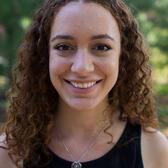
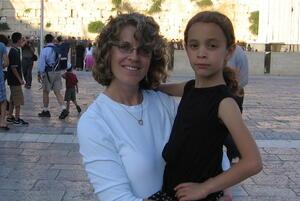
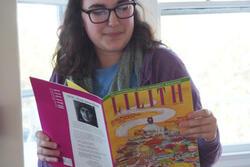
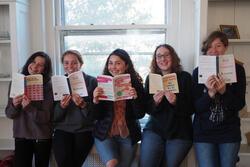
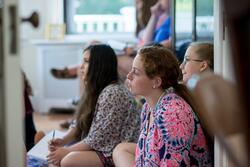


Love this and you! You inspire so many people without even knowing it too